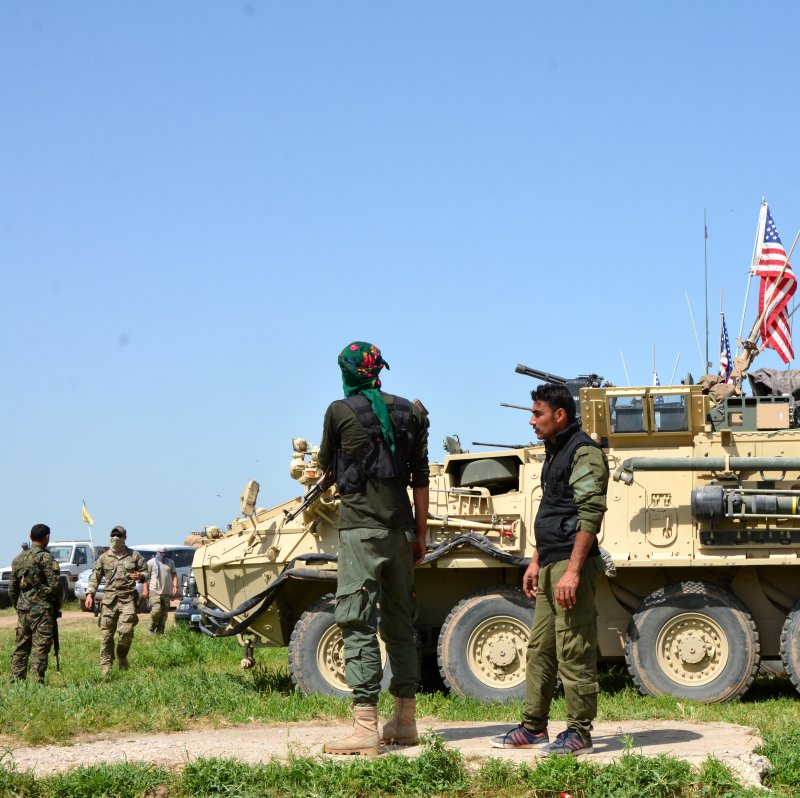Soldiers of the Kurdish People's Protection Unit stand next to a U.S.armored fighting vehicles near al-Ghanamya village, al-Darbasiyah town at the Syrian-Turkish border on April 29. Photo by Youssey Rabie Youssef/EPA
May 9 (UPI) -- The United States plans to directly arm the Syrian Kurdish military, a Trump administration policy opposed by its Turkish NATO ally, officials said Tuesday.
Two officials told NBC News that President Donald Trump has signed the order for the United States to provide the Syrian Kurds with arms and equipment.
Turkey views the Kurdish People's Protection Units, or YPG, as a threat and has criticized the United States for partnering with them in Syria. Ankara views the YPG as an extension of the Kurdistan Workers' Party, or PKK, which is considered a terrorist group by Turkey and the United States.
Dana W. White, the chief Pentagon spokeswoman, confirmed the decision in a statement Tuesday.
"We are keenly aware of the security concerns of our coalition partner Turkey," White said. "We want to reassure the people and government of Turkey that the U.S. is committed to preventing additional security risks and protecting our NATO ally."
Trump is scheduled to meet with President Recep Tayyip Erdogan in Washington next Tuesday and Wednesday.
In March, Secretary of State Rex Tillerson met with Erdogan in Turkey.
NBC reported Trump and members of his Cabinet spoke about it during a meeting late Monday at the White House. Secretary of Defense James Mattis, who in Europe to confer with allies on defeating the Islamic State, joined by video teleconference.
The YPG includes the Syrian Democratic Forces of Arab, Christian and Turkmen fighters.
YPG receives air support from the United States and indirectly through Arab fighters
The officials didn't say whether the Kurds will receive heavier weapons, including anti-tank missiles and armored vehicles. But The Washington Post reported those types of equipment are needed to successfully penetrate Raqqa, which is the Islamic State's de facto capital.
Last week, Trump and Russian President Vladimir Putin spoke about how to resolve the 6-year civil war. That conversation included a "discussion of safe, or de-escalation, zones to achieve lasting peace for humanitarian and many other reasons."
Russia backs President Bashar al-Assad's Syrian government.
On Thursday, diplomats from Russia, Turkey, Iran and Syria agreed to create four "de-escalation" zones in war-torn Syria, though forces opposed to Assad walked out on the deal.















